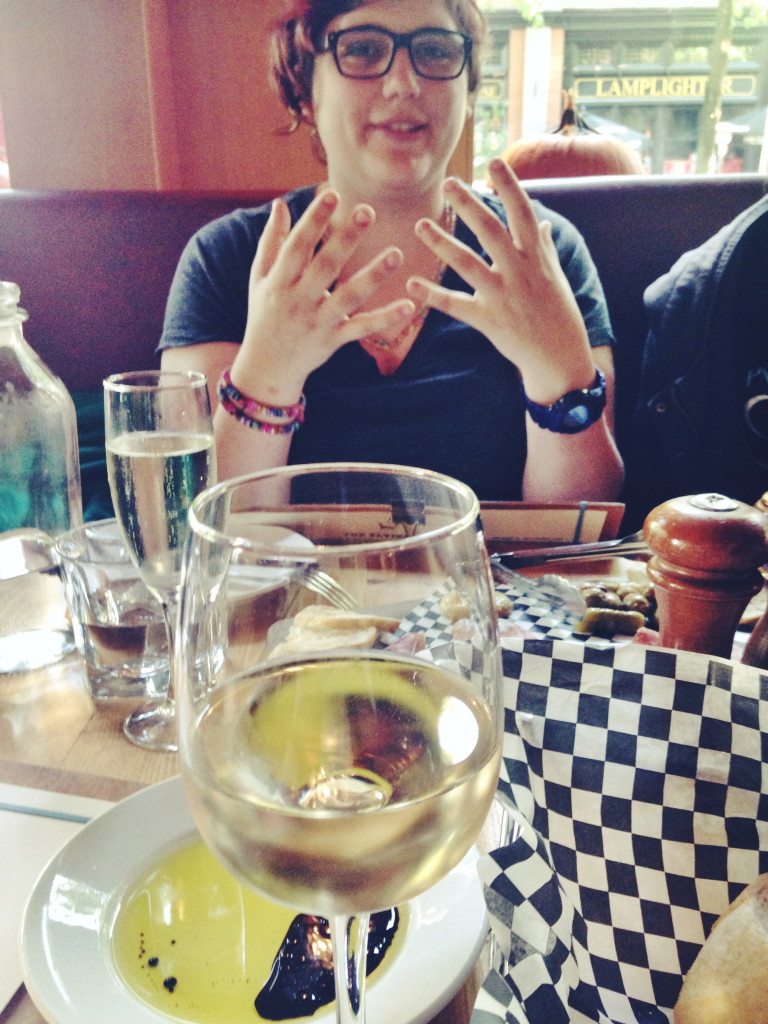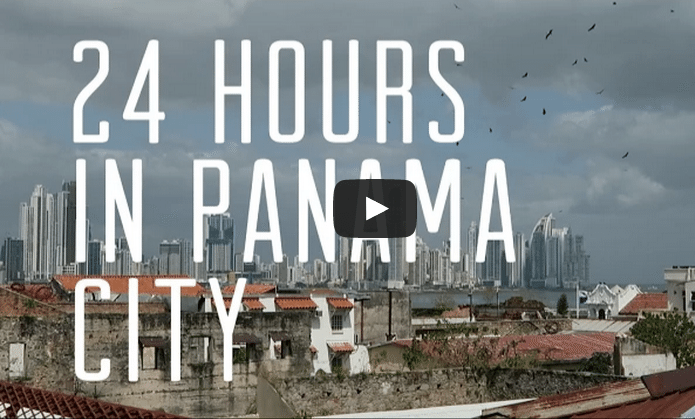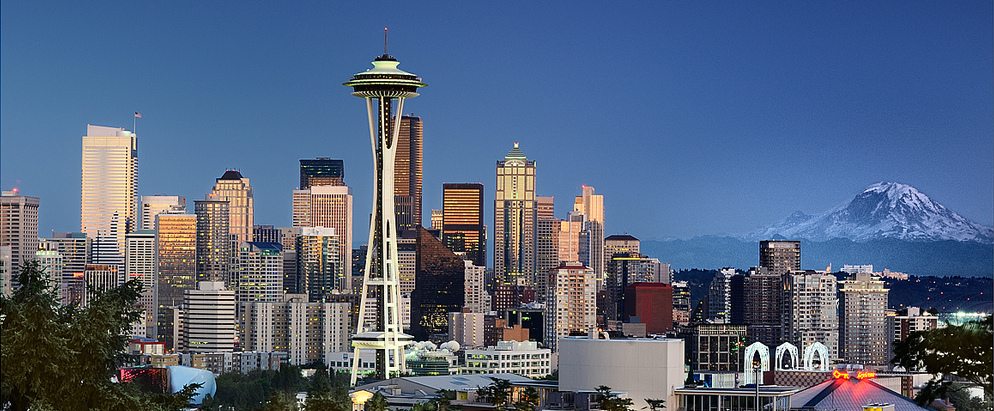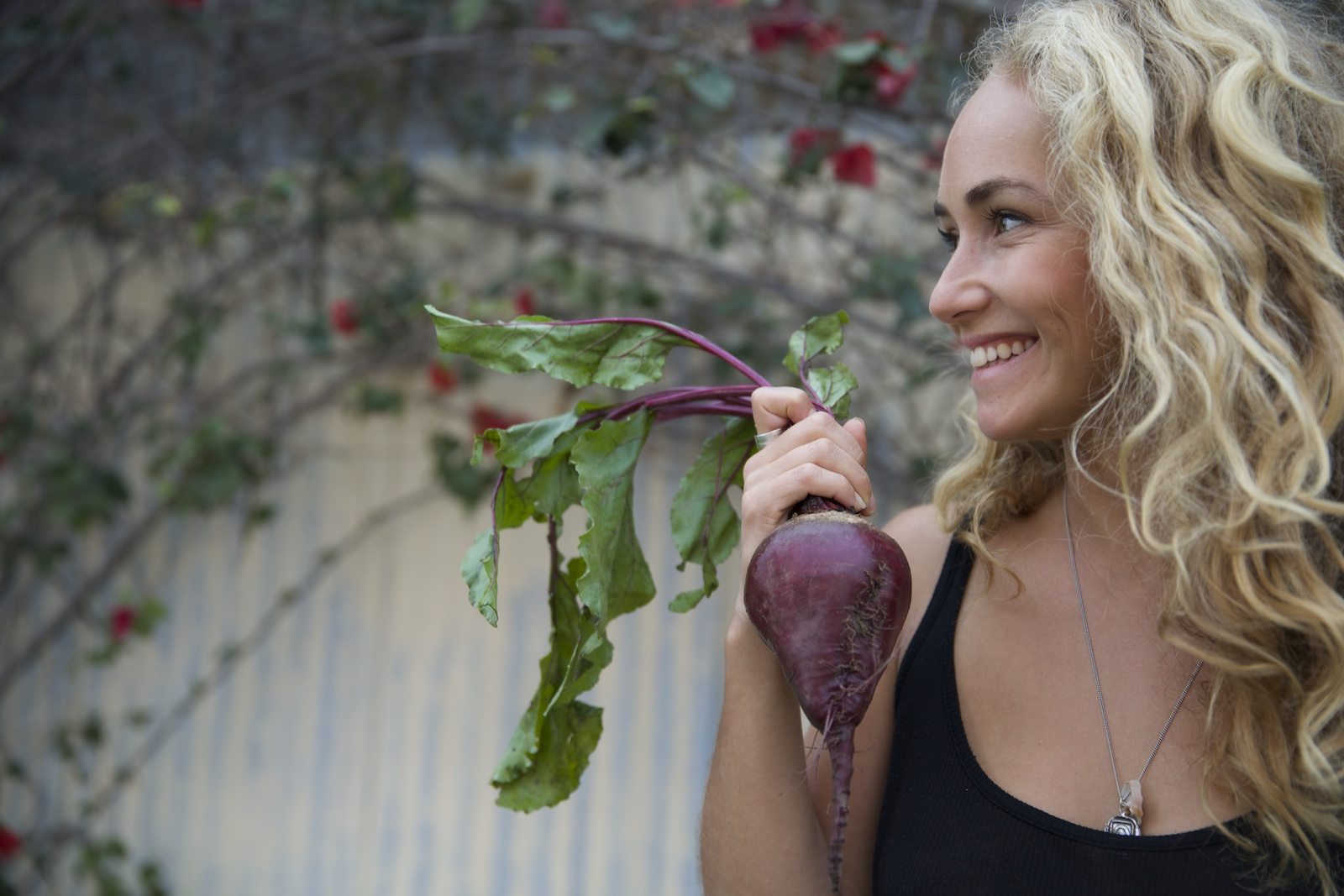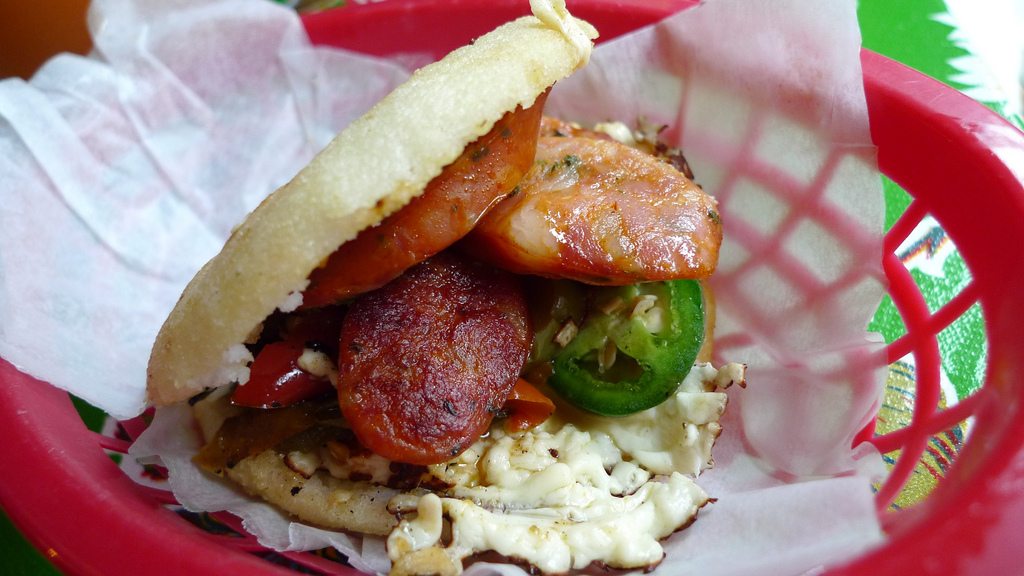
Interview with Talented Cook Alejandra Di Marco on Venezuelan Culture and Cuisine
I sat down with the Venezuelan born and Canadian bred young talented cook Alejandra Di Marco at The Flying Pig, a popular local restaurant. Alejandra graduated from culinary school at the Culinary Institute of Canada in Prince Edward Island and has been nourishing patrons with her skilled and lovingly crafted dishes at popular local restaurants in Vancouver ever since. She currently cooks at The Oakwood Canadian Bistro, a top-rated restaurant located in the heart of Kitsilano. Over a charcuterie plate and Pinot Gris, I chatted with Miss Di Marco about what is it was like growing up in Venezuela, what fuelled her passion to become a cook in Canada, her favourite Latin dishes and advice for all food lovers. Here’s what she shared with us . . .
Where in Venezuela did you grow up?
I grew up in a city called San Antonio de Los Altos, a suburb between two major capitals.
What made you want to leave Venezuela and move to Canada?
As I got older, some things became more apparent than others, and I began to realize how corrupt the society was that I was living in. I was too afraid to go out at night and everyone in my life was scared all of the time. When you spend your entire life being scared you become too afraid to live and I was ready to start living. I wanted to cook, food was my passion and being an openly gay women who wants to cook for a living was not held honorably in my country. I felt like I couldn’t succumb to the male driven society I was living in and refused to waste my twenties for social injustice. There are bigger fish to fry. My father had spent twenty years in Canada doing topography work and took on a Canadian work ethic, teaching me to work hard for the things I wanted in life. Since I was a little girl I knew a greater life existed for me outside of my country and I had to get out so I left as soon as I could
Overall, things were broken back home and I knew I had to get out so I left to Canada on a student-exchange knowing that this is my journey, this is my destiny. When I graduated high school in Venezuela, I moved to Prince Edward Island on the East Coast of Canada where I enrolled to graduate high school in Canada so I had a better chance at getting a job and could improve my English.
What were your biggest challenges adapting to Canadian culture?
The independent nature of Canadians was something I had never experienced before back home. I was used to be stuck inside on the weekends and having my family around me all of the time doing everything together. When I moved to Canada I suddenly had safety and freedom to do as I pleased. It felt uncomfortable and strange at first but once I got used to it I knew that this was the life for me.
What drove your passion for food?
My Grandfather had his own greenhouse and would freshly pick all of our vegetables that we would eat and enjoy every day. I grew to appreciate food at a very young age through the passion my Grandfather had for growing and consuming his own vegetables. I tasted the love that went into every bite of freshly picked leafy green and this created a real interest for the ingredients and love that goes into food. Food is so nostalgic and always has been for me. Watching people having a good time around food was simply a natural consequence to my surroundings growing up. It is something precious, indigenous; the memory that is created with every meal is something that lasts within you forever. I became a cook to be able to create an environment where people can have a positive experience; this is how I show I care and how I nourish those around me. I knew at a young age that I wanted to be a part of that world; creating lasting experiences with every meal I prepare.
Has growing up in Venezuela inspired and influenced your cooking style?
Definitely. In Venezuela there is no such thing as shelved items up to a year, all of your day to day ingredients comes fresh from the markets that are held daily. Picking all of my food fresh every day along with my Grandfathers passion for caring for food from his greenhouse led me to have a feeling of responsibility to know where my food comes from. Respecting the ingredients in their true form is something important I carry with me as a chef.
What are your top three favourite Latin American dishes?
Arepas — A flatbread made out of masa, similar to cornmeal. They are traditionally served with cheese, avocado and various other toppings. They are commonly split in half and used to make sandwiches. They are the Venezuelan version of maple syrup. They are regulated back home and cost more to make than they are purchased so are sold internationally.
Hallaca — Served as a traditional Christmas dish, hallaca is a mixture of everything and anything, typically meat, raisins and olives that are stuffed into a cornmeal dough, wrapped in smoked plantain leaves and then boiled or steamed. This is a nostalgic dish for me. I would prepare this dish with my family every year and it would take an army and a highly organized assembly line to create dozens of these dumpling-like snacks.
PaBellon Criollo — Simply rice, stewed black beans and shredded beef — a local staple.
http://beta.quiet.ly/list/share/fba53-alejandra-s-favourite-venezuelan-dishes?width=800&height=500&heightAuto=false&showGradient=false&showMapView=false&showAuthor=false&showLogo=false&showListTitle=true&showListDescription=true&showTitles=true&showDescriptions=true&showWeblinks=true&makeClickable=true&sharePage=true&showEmbedCode=true&showIcons=false&embedTheme=dark&titleSize=18&titleType=quietly&descriptionSize=14&descriptionType=quietly&useOriginalImages=false&lastSlide=default&lastSlideMsg=&lastSlideUrl=https:
What comfort food do you miss the most from Venezuela?
Cachapas! They are pancakes made out of corn traditionally eaten with Queso de Mano, a soft, mozzarella-like cheese. They are cooked at dry heat on a budare, the Venezuelan version of a wok. You could find the best ones at roadside stands. My dad used to freeze them and fly them out to Canada for me.
What staples is Venezuela most known for?
High quality coffee and cacao.
Is there anything used in Venezuelan cuisine that makes it distinct from its neighboring South American countries?
Venezuelan cuisine is a melting pot between lots of cultures. Cumin is a dominant note in many traditional dishes. The cuisine is not spicy like everyone misconceives it to be.
What do you miss most about Venezuela’s food scene?
The lack of food trends. Everyone uses fresh ingredients from the market and eats and cooks what they want, not according to what is trending, hip, or fashionable. I also miss being able to get a coconut fresh from the tree, tropical fruits and fresh seafood all year round. Food shouldn’t be treated as a fashion statement. I miss the lack of direct contact with where the products you’re using come from in North America. In Venezuela, the people live off the land; there is no middle man.
Do you have any advice for local and international food lovers?
Chase and use the ingredients around you. Sometimes you have to compromise the cost to source and consume food ethically and responsibly. Also changing your diet seasonally to adapt to your bodies changes and desires will help keep you feeling satiated all year round.
Where is your favourite local spot to dine in Venezuela?
Playa Medina — it is my favorite spot in Venezuela to eat a fresh simple meal in a beautiful setting. It is a secluded beach situated along the coast surrounded by towering mountains, palm trees and white fine sand.
There is a local restaurant on the beach where you can only order fresh catch of the day that has been brought in that morning. The freshly poached fish is deep fried and served with rice and potatoes. Not a great culinary accomplishment but your in the most scenic, peaceful place in the middle of nowhere and you get to eat this beautiful fresh fish; all in a country that has so many problems and to know that those experiences exist creates a greater feeling of possibility for the country.
Are there any misconceptions about Venezuela you want to shed light on?
Venezuela is not in Mexico!



